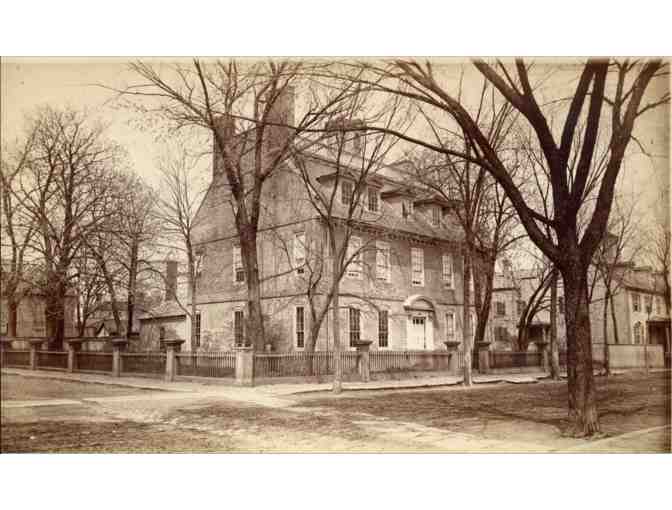Auction Item
Personal Membership to the Warner House
- Item Number
- 325
- Sold
- 15 USD to kbf8fbba6
- Number of Bids
- 3 - Bid History
Item Description
With a personal membership to the Warner House you will be able to experience the story of a three-hundred-year old Portsmouth house occupied by a family for six generations.
Membership includes
- free admission for one
- a newsletter
- invitations to special events
- and Gift shop discount
HISTORY OF THE WARNER HOUSE ASSOCIATION
In 1930, the last remaining descendant who had been born in the Warner House died, Thomas Penhallow. Since the 1880s, the extended family had used the Warner House as a summer residence, and the Penhallow heirs, the children of Thomas's deceased brother Charles, decided to sell the Warner House. Its contents removed and scattered amongst the heirs, the property was listed for $10,000. A local oil company, Standard Oil, offered to buy the house with the plan to put a gas station on the site. At the time, this was a practical decision since Daniel Street was Route 1, the main highway from Massachusetts, and the nearby Route 1 / Memorial Bridge had just opened linking New Hampshire and Maine. Next door, the impressive Sherburne House had already been torn down and replaced by a gas station. The Warner House seemed destined for the same fate.
One of the heirs brought the gas station's offer to Sumner Appleton, founder of SPNEA, the Society for the Protection of New England Antiquities (now known as Historic New England). Unable to take on the monumental task of rescuing the house himself, Appleton suggested Edith Greenough Wendell (1859 - 1938) [pictured right], wife of Harvard professor Barrett Wendell. The Wendells lived both in Boston and Portsmouth, the ancestral home of the Wendell family.
In 1931, Edith Wendell and her friends formed the Warner House Association to raise the funds amongst her well-connected circle of friends and historians and to set up the Warner House as a house museum. Within the year, the money had been raised, and in the spring of 1932, the Warner House Association purchased the Warner House. That summer, the unfurnished museum first opened to the general public. At the time, Appleton wrote to a friend that Edith's ability to raise the money during the worst of the Great Depression was "one of the most remarkable instances of preservation work in America."
During the early Association days, the goal was to create a historic museum based upon the lives of first owner Archibald Macpheadris and his son-in-law Jonathan Warner with a cut off date of interpretation of 1762. While the house was saved, restoration errors were made as was so often the case in the Colonial Revival period of museum interpretation.
Today, the Warner House Association interprets the Warner House from a time of Macpheadris's first occupancy to that of the early Warner House Association (1716-1930s), furnished with many original family pieces documented by estate inventories and early photographs.
Item Special Note
2017 Annual Online Auction Sponsors
SEACOAST REPERTORY THEATRE stores data...
Your support matters, so SEACOAST REPERTORY THEATRE would like to use your information to keep in touch about things that may matter to you. If you choose to hear from SEACOAST REPERTORY THEATRE, we may contact you in the future about our ongoing efforts.
Your privacy is important to us, so SEACOAST REPERTORY THEATRE will keep your personal data secure and SEACOAST REPERTORY THEATRE will not use it for marketing communications which you have not agreed to receive. At any time, you may withdraw consent by emailing Privacy@frontstream.com or by contacting our Privacy Officer. Please see our Privacy Policy found here PrivacyPolicy.






